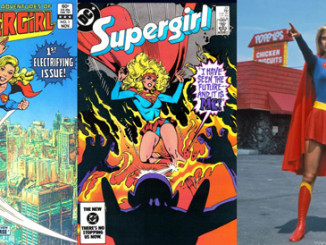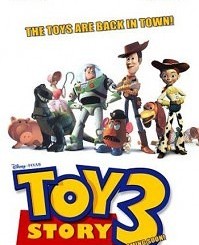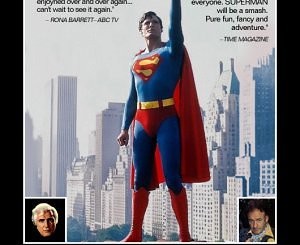 False Tension, Bland Drama, Banal Inspiration And The Unforgivable Transformation Of Nelson Mandela Into A Yoda-like Character Mouthing Embarrassing Platitudes
False Tension, Bland Drama, Banal Inspiration And The Unforgivable Transformation Of Nelson Mandela Into A Yoda-like Character Mouthing Embarrassing Platitudes
I recently celebrated a milestone birthday. As I reflected upon the day, I thought about the sheer number of unlikely things that have occurred in my lifetime.
On the negative side, I have witnessed the single worst airplane crash (in Tenerife in 1977), the single worst nuclear disaster (Chernobyl in 1986), the worst environmental disaster (the Exxon Valdez oil spill in 1989), the worst industrial disaster (the 1984 methyl-isocyanate leak in Bhopal), the worst natural disaster (the Boxing Day Tsunami in 2004) and the worst terrorist attack on US soil on September 11, 2001.
But on the positive side, back when I was ten, the idea that Great Britain and the IRA would ever achieve a ceasefire in their hostilities was, at best, a dim prospect. Likewise, no one thought the USSR would ever dissolve or that the Berlin Wall would be dismantled and the idea that a black man would one day, in my lifetime get elected President of the United States was given about as much a chance of happening as finding two identical snowflakes.
Therefore, the very thought that South Africa, a county where racism WAS the official government policy would ever end its evil apartheid ways was almost inconceivable. And that those same South African citizens would also elect themselves a black president was an almost unbelievable turn of events.
But it did happen.
Then, in move that truly astounded almost everyone, President Nelson Mandela, a man who personally had plenty of justification for seeking revenge on the previous Caucasian administrations who treated the black citizens of South Africa with such cruelty and disdain, was determined to unify his country and keep the people from devolving into anarchic resentment and revenge. To achieve this almost impossible goal, President Mandela (a believer in the power of forgiveness) established the Truth And Reconciliation Commission wherein the South African people, if they honestly admitted their past racist misdeeds and were sincerely remorseful, they would then be publicly forgiven. It is never an easy thing to forgive those who have trespassed against you. This is why almost every culture considers true forgiveness to be one of the most important virtues you can ever attain.
It’s because forgiveness is such a hard thing to do that made the fact that South Africa was doing it such a newsworthy event and let’s be realistic, it could have failed miserably. The fact it didn’t showed me that the people of South Africa, both black and white, have achieved a level of grace and civility that we Americans can only dream about.
Don’t believe me? Have you heard Glenn Beck or Rush Limbaugh recently? For that matter, just listen to any Teabagger or wingnut religious conservative on contemporary talk radio; you won’t hear more foolish hateful nonsense this side of a fascist dictator. Our airwaves reek from the opinions of the aggressively lowbrow and the militantly stupid, all cheered on by equally ignorant TV commentators and lunatic fringe politicians cynically manipulating the public discourse for their own petty power games. It’s enough to make a grown man cry.
However, what the real Nelson Mandela did to help South Africa avoid the potential revenge and recriminations of the people is a truly inspiring story that gives me hope for mankind.
 So how come Invictus proved to be one of the most annoying experiences I have spent in a movie theater in a long time? Was it because director Clint Eastwood has reduced Nelson Mandela to a supporting player in his own life and instead focused his film on a white rugby team? Was it because he turned the truly inspirational Nelson Mandela into a Yoda-like character sputtering out banal philosophy that would embarrass even the flightiest of New Age nit-wits, or even a serious New Age nit-wit like Deepak Chopra?
So how come Invictus proved to be one of the most annoying experiences I have spent in a movie theater in a long time? Was it because director Clint Eastwood has reduced Nelson Mandela to a supporting player in his own life and instead focused his film on a white rugby team? Was it because he turned the truly inspirational Nelson Mandela into a Yoda-like character sputtering out banal philosophy that would embarrass even the flightiest of New Age nit-wits, or even a serious New Age nit-wit like Deepak Chopra?
I haven’t been this disappointed in a film since last year when I saw the ludicrous Changeling and the dismal Gran Torino. I have to ask this question; what has happened to Clint Eastwood? I have generally been a fan of Eastwood in his acting roles in westerns and cop dramas, including the ones he directed. As an actor, Clint Eastwood is capable of eliciting a sense of macho vulnerability that other action stars of his generation were not capable of doing.
Consider Clint Eastwood in the Wolfgang Petersen film In The Line Of Fire, Eastwood showed a sense of human frailty and self-doubt that added subtle dimensions to the film. One of Clint Eastwood’s better qualities is he has always had a slightly mocking sense of humor regarding his screen persona. Indeed, Eastwood had no trouble playing second banana to an orangutan in the films Every Which Way But Loose and Any Which Way You Can, something you could never expect from a notorious sour puss like Steve McQueen.
As a director though, Clint Eastwood has never shown anything like subtlety. This is perfectly OK when you are making utilitarian action pics like Heartbreak Ridge, western revenge fantasies like High Plains Drifter or Dirty Harry sequels. But projects like Bird, a bio-pic of the jazz musician Charlie Parker, or a complex murder in high society drama like Midnight In The Garden Of Good And Evil or even a simple romance film like The Bridges Of Madison County require a level of directorial sophistication that Eastwood simply does not possess. And the problem seems to be that Clint Eastwood doesn’t realize it and no one is brave enough to tell him.
I know Eastwood prefers to shoot his films fast, but how else can you explain the fact that after directing about 30+ feature films, Clint Eastwood still has not developed any kind of engaging camera sense? I find it hard to accept the consistent sloppy choice of camera angles and coverage in Eastwood directed films, especially since he usually works with very competent cinematographers and editors. I am not being disingenuous. I know that telling a story via the film medium is a very difficult task. I myself have written and directed numerous short films and two feature length films so I am aware of the dichotomy between what a director wants to achieve, and what can actually be achieved within the constraints of time and budget. But none of that enters into the choice of what story you wish to tell. So it is perfectly fair to ask, why did Clint Eastwood decide to tell this story as opposed to the countless other scripts that have no doubt piled up in his Malpaso Productions office?
I could have told Eastwood that he was embarking on a fool’s errand if he was specifically trying to make an “inspirational” movie. That’s like trying to make a “cult” film on purpose. You can’t. If an audience derives inspiration from your film, that’s great, but they will have to do that on their own, you can’t help them. Because if you try to impose an inspirational feeling onto an unsuspecting audience, you will just end up sounding preachy and scolding. Consider some of the films that people have called “inspirational” in the past like Rocky or It’s A Wonderful Life and you will see that being inspirational was not the intention of the filmmakers. Believe me, the only thing worse than false sincerity is false inspiration.
But Invictus compounds every inspirational felony by telegraphing every poignant plot point well in advance, so even the thickest audience member will get it. The downside to that is that any chance of a narrative surprise or character insight is completely muffled. Is this what Eastwood’s vast experience in the film industry has taught him? That it is better to bludgeon an audience into submission than to allow them to figure things out on their own?
Clint Eastwood has spoken with admiration for some of the directors he has worked with in the past, like the studio trained minimalist Don Siegel and the operatic Italian stylist Sergio Leone, in fact, he’s even dedicated films to those two masters. Why Clint Eastwood now desires to direct films like a Ron Howard clone is a true mystery. But there are a couple of things in Invictus that even the anemically talented Ron Howard would have vetoed. For instance, what’s with all the musical montages that serve no purpose but to add length to what is already an over-long film?
 And more than once, Clint Eastwood tries to make us fear that Nelson Mandela (played by Morgan Freeman) will be assassinated. Early in the film, Eastwood counterpoints Nelson Mandela’s brisk early morning walk with the movement of a speeding van with dark tinted windows heading towards a sinister rendezvous with the oblivious new President. As it turns out, the van is simply delivering stacks of newspapers, much to the relief of Mandela’s security detail. Later in the film, we are shown a very suspicious looking white man surveying the rugby stadium where the World Cup game will be played and then, when the game has begun and Nelson Mandela is in attendance, we cut to this white man and we discover him in the cockpit of a jumbo jet. With malevolent foreboding, he creepily assumes control of the plane from the other pilot and aims it directly at the rugby stadium, his eyes radiating with a psychotic glee. One (and only one) of Mandela’s security team notices the distant jumbo jet heading towards the stadium, coming in way too low and there is a panicky walkie-talkie discussion about what to do to save Mandela, but there is no time to do anything before the huge jet buzzes over the stadium rattling the windows of the Presidential skybox, knocking over drink glasses and booze bottles. But the plane is carrying nothing more dangerous than a friendly message to the South African rugby team painted on the bottom of the fuselage. The surprised stadium audience erupts into applause.
And more than once, Clint Eastwood tries to make us fear that Nelson Mandela (played by Morgan Freeman) will be assassinated. Early in the film, Eastwood counterpoints Nelson Mandela’s brisk early morning walk with the movement of a speeding van with dark tinted windows heading towards a sinister rendezvous with the oblivious new President. As it turns out, the van is simply delivering stacks of newspapers, much to the relief of Mandela’s security detail. Later in the film, we are shown a very suspicious looking white man surveying the rugby stadium where the World Cup game will be played and then, when the game has begun and Nelson Mandela is in attendance, we cut to this white man and we discover him in the cockpit of a jumbo jet. With malevolent foreboding, he creepily assumes control of the plane from the other pilot and aims it directly at the rugby stadium, his eyes radiating with a psychotic glee. One (and only one) of Mandela’s security team notices the distant jumbo jet heading towards the stadium, coming in way too low and there is a panicky walkie-talkie discussion about what to do to save Mandela, but there is no time to do anything before the huge jet buzzes over the stadium rattling the windows of the Presidential skybox, knocking over drink glasses and booze bottles. But the plane is carrying nothing more dangerous than a friendly message to the South African rugby team painted on the bottom of the fuselage. The surprised stadium audience erupts into applause.
I find this scene totally unforgivable, even though it actually happened. Yes, a real jumbo jet did buzz the stadium during the World Cup game and I can only hope the pilot had his license revoked for the dangerous stunt because there are some things you just don’t do. But the reason this is unforgivable in Invictus is because Clint Eastwood is not using this incident for the reason it actually happened, as a demonstration of how the citizens of South Africa became a more unified people through the exploits of their national rugby team. No, Clint Eastwood is using this incident as a way to instantly tap into our post 9/11 awareness of planes flying into buildings for terror purposes to make us think we are about to witness the assassination of Nelson Mandela by 747 jumbo jet. But all it does is create a false and inept feeling of tension. For the record, although he is older now and not quite as vigorous as he once was, as of this writing, Nelson Mandela is very much alive.
Who was Clint Eastwood hoping to fool? I mean, even the most xenophobic American who cares not one whit about what happens outside the borders of the continental United States would have at least heard about a jumbo jet crashing into a rugby stadium in South Africa during the World Cup game, which, by the way, is actually played for by teams from around the world, most unlike our own masturbatory baseball World Series where we even celebrate the lunacy of two teams from the same city competing with each other, as if this were something culturally significant.
Invictus is nothing more than a two hour plus scolding lesson full of inspirational haranguing that has the ultimate effect of pummeling you into brain dead, but laudatory submission. When I looked around and saw that the whole damn fool audience was cheering at some of the most cliché of sport movie banalities, I found it a lot easier to just turn off my brain and simply go with vapid emotions of this undiscerning crowd.
Although it’s not explained very clearly, the title Invictus is Latin for “unconquered” and is also the title of a famous poem by William Ernest Hensly that ends with the lines “I am the master of my fate: I am the captain of my soul.”
Apparently, Nelson Mandela used to recite the poem to himself during his long imprisonment on Robben Island to help keep himself sane. But there is a more recent use of the poem Invictus that deserves to be mentioned.
It seems that when Oklahoma City Bomber Timothy McVeigh was executed on June 11, 2001, he used the Hensley poem Invictus as his final statement to the world. Proving once and for all that you never can tell what another person is going to find inspirational. Why do I find Timothy McVeigh’s selection of Invictus much more interesting to contemplate than Nelson Mandela’s?




